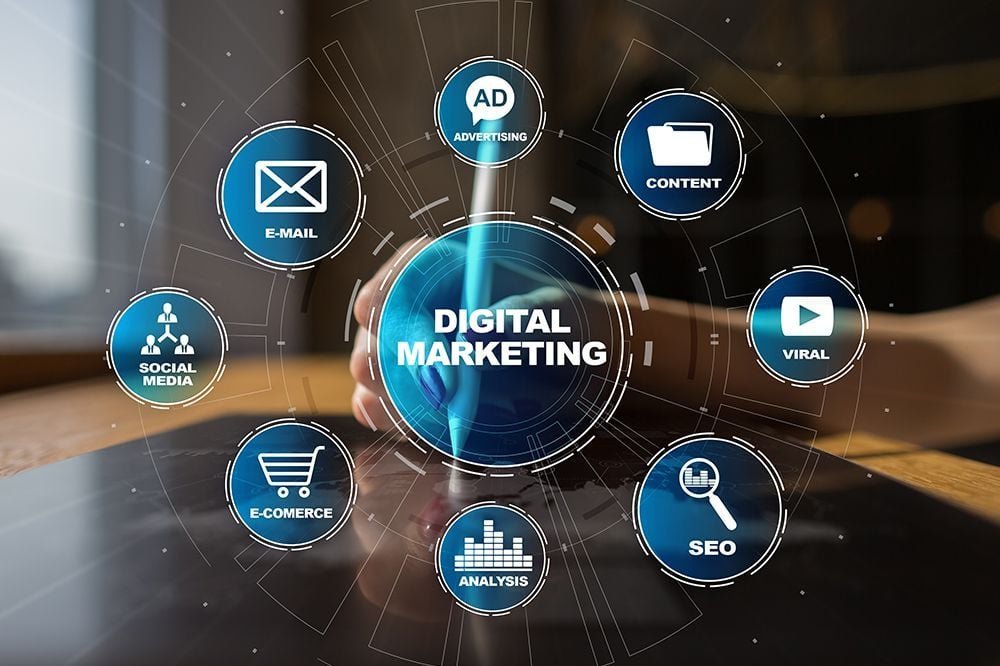
Introduction:
For Canadian B2B startups, digital marketing is an essential tool for growth but often presents unique challenges, such as limited budgets, finding the right audience, and crafting content that truly engages. In this guide, we’ll explore these challenges, discuss practical solutions, and recommend helpful tools to streamline marketing for small teams. Whether you’re new to digital marketing or looking to refine your strategy, this guide provides actionable insights tailored for B2B startups in Canada.
1. Overcoming Budget Constraints: Cost-Effective Strategies for Startups
One of the most significant challenges for startups is limited financial resources. Effective digital marketing, however, doesn’t always require a big budget. By focusing on strategic, high-impact areas, startups can build a solid online presence without overspending.
Educational Insights:
- Content Marketing as a Long-Term Investment: Producing high-quality, informative content can drive traffic and establish authority over time. Blog posts, infographics, and even simple guides offer valuable information to your target audience, encouraging them to visit your site regularly.
- Leveraging Organic Social Media: While paid ads can quickly consume a budget, organic social media is free and allows startups to build relationships with audiences. LinkedIn is especially valuable for B2B marketing, offering the chance to publish industry insights, connect with decision-makers, and establish authority.
- Focusing on SEO and Local SEO: Optimizing your website for search engines is essential for organic growth. Through simple SEO strategies—like targeting relevant keywords, optimizing your website for mobile devices, and building links—you can improve visibility. Additionally, local SEO tactics, such as creating a Google My Business profile, ensure that potential customers in your area can find you easily.
Recommended Tools for Beginners:
- Canva: Create professional, eye-catching visuals for social media and blogs.
- Google My Business: Strengthen local SEO and improve visibility in local search results.
- SEMrush or Moz: Simple SEO tools that help you track and optimize website performance.
2. Enhancing Audience Targeting with Customer Segmentation
For B2B startups, understanding and reaching the right audience is crucial. Customer segmentation allows you to categorize potential clients based on specific traits, enabling you to tailor messages that resonate with each group.
Educational Insights:
- Using Data to Refine Your Target Audience: Start by analyzing any existing customer data to identify common characteristics among your most valuable clients. Group clients based on demographics, industry type, company size, or behaviors to create targeted marketing strategies.
- Email Marketing Automation for Personalized Messaging: Email is one of the most cost-effective ways to reach B2B audiences. With email automation, you can segment your audience and send targeted messages that nurture leads over time. Drip campaigns, for example, allow you to introduce prospects to your brand gradually and convert them into clients with educational and valuable content.
- Implementing Retargeting Campaigns: Retargeting keeps your brand top-of-mind for users who have shown interest in your website. These ads, tailored to users who have visited your site but didn’t convert, can encourage them to return and take action.
Recommended Tools:
- Mailchimp or HubSpot: Email marketing platforms with strong segmentation capabilities.
- Facebook and Google Ads: Use for retargeting campaigns to reach potential clients who have shown interest.
- Clearbit: Adds valuable segmentation data to your CRM, helping you better understand and target your audience.
3. Creating Engaging Content that Converts: Practical Ideas for B2B Startups
Content that resonates with B2B audiences not only builds brand awareness but also drives conversions. However, developing effective content requires careful planning and an understanding of what engages your audience.
Educational Insights:
- Building Trust with Case Studies and Whitepapers: Case studies and whitepapers are ideal for showcasing your company’s expertise and problem-solving abilities. By outlining specific challenges faced by other clients and how your solutions helped, these pieces offer evidence of value that appeals to B2B buyers.
- Hosting Webinars and Live Q&A Sessions for Direct Engagement: Webinars are excellent tools for building relationships and sharing expertise. You can address common industry challenges, demonstrate your solutions, and answer questions in real time. Webinars can also serve as evergreen content—recorded sessions can be shared on social media or your website for continued engagement.
- Using Social Proof through Testimonials and Reviews: Sharing testimonials and positive client feedback on your site or social media helps build credibility and trust. Many B2B buyers rely on peer recommendations, so highlighting social proof can help establish authority and attract new clients.
Recommended Tools:
- Zoom or GoToWebinar: Platforms for hosting interactive webinars and online workshops.
- Typeform: Easily create surveys to gather client feedback and testimonials.
- Google Analytics: Track content performance and engagement to optimize future strategies.

